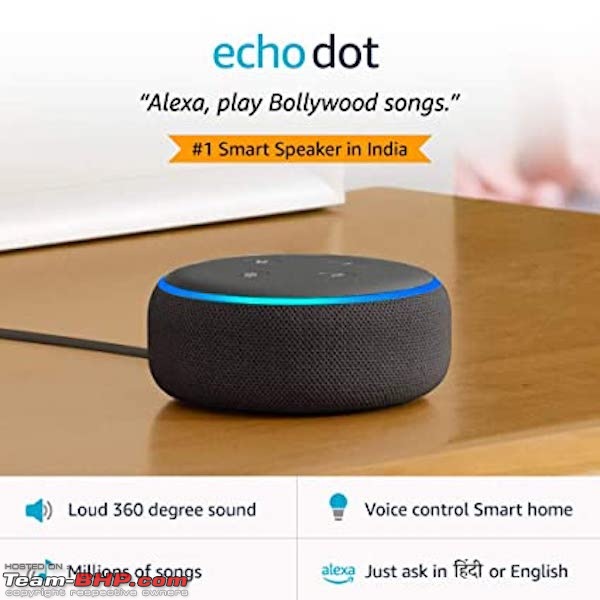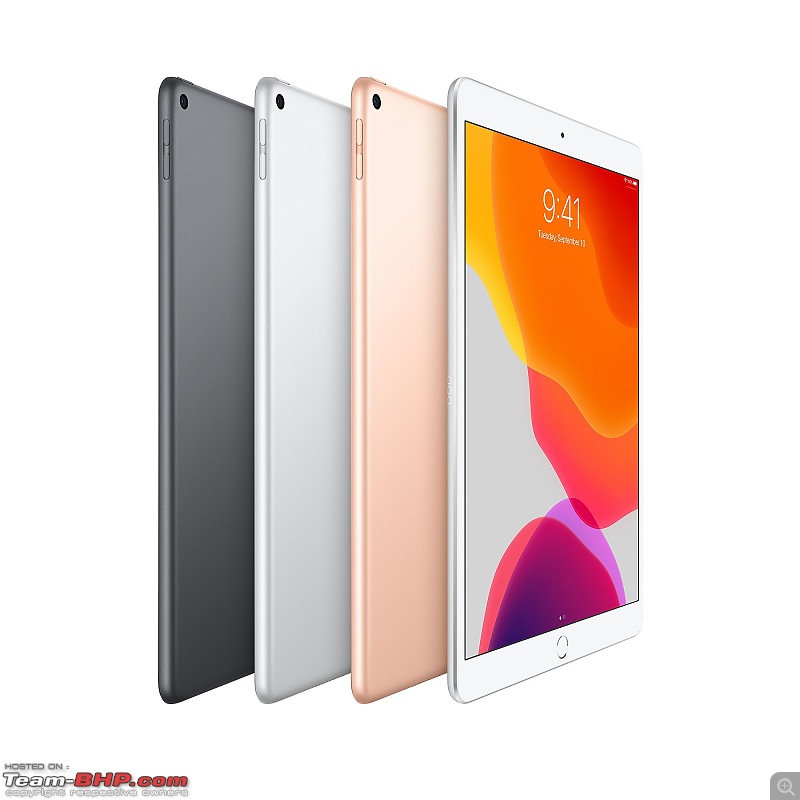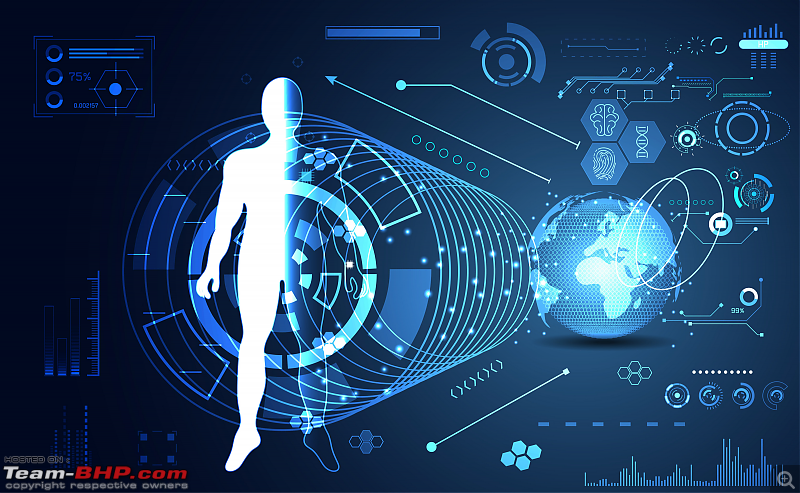Before I start with my list of new technologies, let us first take a look at the top 10 of the last decade in no particular order:
Voice commands: Personal voice assistants have become a common gadget in many homes, and they are also used a lot in cars to help the driver avoid taking his hands off the steering wheel. Devices like the Amazon Echo have improved productivity and convenience for many people, despite the privacy concerns.
 4G internet:
4G internet: Possibly the biggest jump in terms of smartphones and their usability in our day to day lives. Thanks to 4G, we have mobile streaming, hotspots, real-time apps like games, ride share apps, on-demand delivery services, etc.
 Smartwatches:
Smartwatches: Wearable technologies like the Fitbit, Google Glass and Apple Watch mark a shift into a new age, which was earlier only imagined in science fiction. These technologies are starting to get more interwoven with our daily lives, and this is still only the beginning for wearables.
 iPad and Tablets:
iPad and Tablets: In the last decade, personal touchscreen computing has set the development direction. Devices like the iPad and the Surface have particularly made an impact. With incredible processing power for the package size, and software features increasing with every update, they are eating into the share of traditional PCs and laptops.
 EVs gaining traction:
EVs gaining traction: Electric-powered cars have shown us that they can be as cool as their ICE-counterparts, if not cooler! While there are many carmakers offering EVs, the flag-bearer of this movement is undoubtedly Tesla.
 Streaming Services:
Streaming Services: The popularity of streaming has only skyrocketed since the last few years. People are ditching their cable TVs and opting for subscription services like Netflix, Amazon Prime, Hotstar etc. Some of these platforms have also been producing and launching online-only movies and TV shows.
 3D printing:
3D printing: Although available since the 1990s, 3D printing has gained traction in the last decade from a prototyping tool to a viable industrial process. While this technology is used to make many new parts, it can also be used to make replacements for parts that are no longer available.
 Cloud technologies:
Cloud technologies: Products like Dropbox, Apple iCloud, Google Drive, and Microsoft OneDrive have changed the way we store data. While technologies like Azure have changed the way we work. The office is now flexible, efficient and productive thanks to access to shared data in real-time. Cloud technologies have made information & education seamlessly available across the globe.
 Raspberry Pi:
Raspberry Pi: While it started as tool to promote basic computer science in schools, this series of single-board computers has motivated people of all ages to get involved with programming. It's also a popular choice amongst hobbyists and developers. With about 12 million copies sold since 2012, the humble Raspberry Pi has been a strong advocate for the Internet of Things (IoT).
 Gaming tech - VR, Xbox Adaptive Controller etc.:
Gaming tech - VR, Xbox Adaptive Controller etc.: Oculus VR took gaming to virtual reality, Xbox Adaptive Controller made gaming accessible to those with limited mobility and the Nintendo Switch combined old vintage games with new ones that are accessible, portable, and social.
 IBM's Watson:
IBM's Watson: While developed to answer questions of the quiz show Jeopardy, it has evolved its cognitive-computing abilities that could possibly lead us to a computer than can think. The first commercial application for the computer was making utilization management decisions for treatment of lung cancer. Today, it has helped app developers, cancer researchers, designers and Sesame Street producers amongst others.

Here are some technologies that I expect to go mainstream this decade:
Artificial intelligence (AI) and machine learning: With computers already an integral part of our lives, the next decade will bring about even more powerful technologies like AI and machine learning to better our lives. A lot of tasks that are currently performed by humans will be automated, with a higher level of precision and speed.
 The Internet of Things (IoT):
The Internet of Things (IoT): We've seen the difference it has made to have computers on our desks, in our hands and on our wrists. Now imagine the benefits of the same revolution in our microwaves, fridges, lightbulbs, music systems and virtually any other appliance that could benefit from the same. Throw in some AI and the possibilities only multiply.
 Blockchains:
Blockchains: This secure way of storing and authenticating data could be the next revolution across all industries, and not just limited to finance or cryptocurrencies as most people presume.
 Autonomous vehicles:
Autonomous vehicles: We are the minority who truly enjoy driving. It's inevitable that autonomous vehicles will be the preferred mode of transport in the future - be it cars, taxis, buses, ships or aircraft. The huge advantages that computer-controlled driving will provide for safety, predictability and efficiency will be unmatched.

BHPians, please add to the list.
 (25)
Thanks
(25)
Thanks

 (3)
Thanks
(3)
Thanks
 (5)
Thanks
(5)
Thanks

 (23)
Thanks
(23)
Thanks
 (4)
Thanks
(4)
Thanks
 (4)
Thanks
(4)
Thanks
 (3)
Thanks
(3)
Thanks

 (5)
Thanks
(5)
Thanks
 (6)
Thanks
(6)
Thanks
 (1)
Thanks
(1)
Thanks
 (2)
Thanks
(2)
Thanks
 (3)
Thanks
(3)
Thanks
 (1)
Thanks
(1)
Thanks
 (3)
Thanks
(3)
Thanks
 (3)
Thanks
(3)
Thanks



















 , just like its fun to read on BHPians bragging about
, just like its fun to read on BHPians bragging about 


